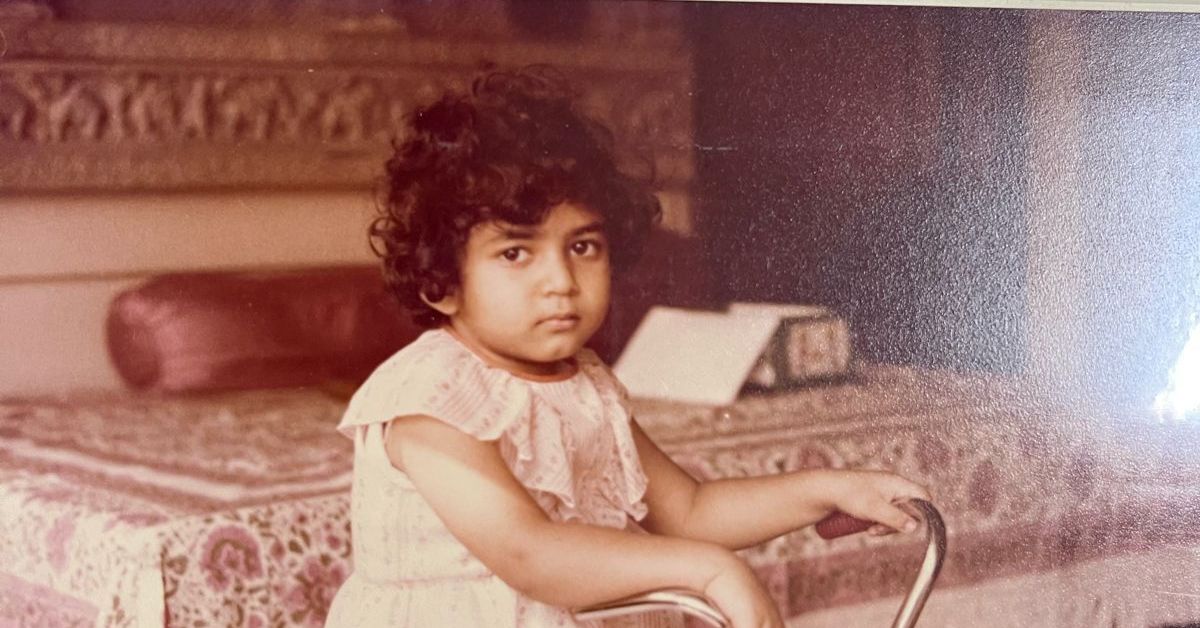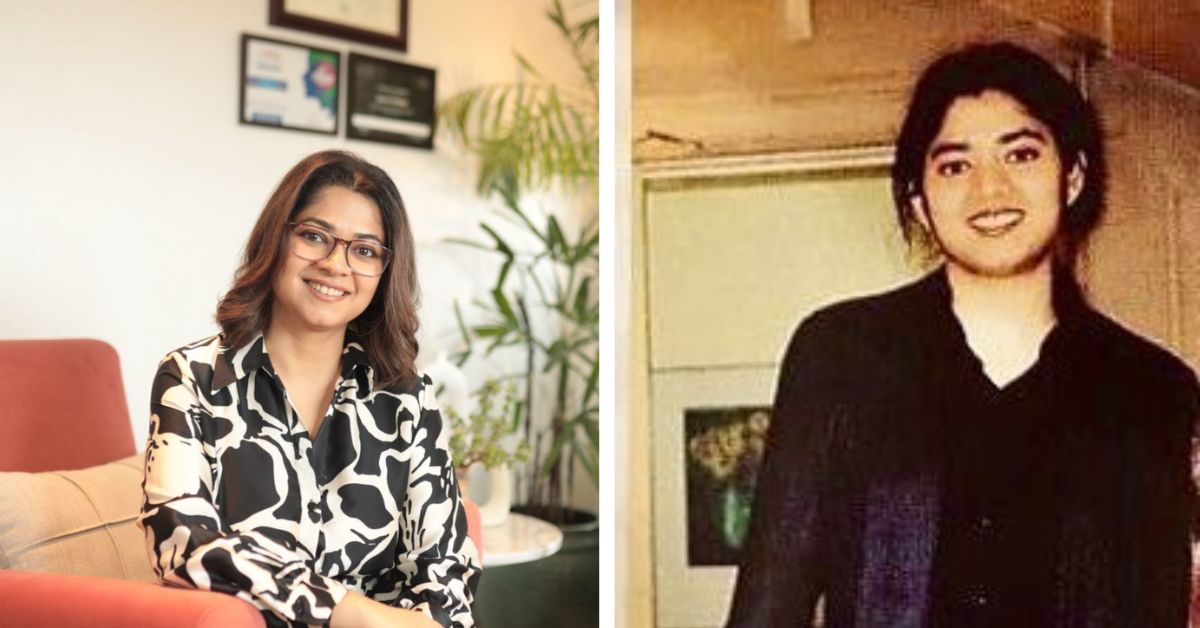[ad_1]
Set off Warning: Mentions of sexual abuse, violence, melancholy, and consuming problems
On the core of human existence, our experiences form us. The persona shaped in our early life is a present from these we encounter, leaving lasting impressions. When these experiences contain abuse and violence, they penetrate deep, turning into a part of an individual’s essence. Such reminiscences can hinder emotional progress, trapping people in cycles of concern and self-doubt.
At 43, Mansi Poddar nonetheless wrestles with the traumas of her adolescence, haunting her and resulting in poisonous cycles.
“I endured a troubled adolescence full of abuse and violence. I had nobody to show to again then. As a part of my therapeutic course of, I’m working in the direction of creating an ecosystem the place nobody feels unheard,” she says.
Now a psychotherapist and the founding father of the Heal Develop Thrive Basis, Mansi engages in heartfelt conversations to open up about her therapeutic journey with The Higher India.
‘Abuse turned my regular’
Born and raised in Kolkata, Mansi’s childhood was difficult, to say the least. “Rising up in Kolkata in a joint household setup was difficult, nevertheless it turned even tougher when my grandfather handed away,” she says.
“My father’s facet of the household wished my grandmother to go to Banaras [Varanasi] and stay her days as a widow. My grandmother needed to basically battle for her survival and place in the home,” she recollects.
Whereas Mansi was too younger to understand the patriarchy her childhood residence was seeped in, she recollects her grandmother’s struggling. “For a kid, it is a traumatic expertise. Even at present, I attempt to break down that occasion and perceive the way it affected me as an individual,” she says.
Rising up in a patriarchal residence got here with its set of challenges, however issues began to get more durable as Mansi grew up. “I bought my durations early and so my physique began to vary. I appeared older and totally different from women my age,” she recollects.

However the first time Mansi was molested, she says, was on the age of 4. “I didn’t realise it was abuse at that younger age. In these days, youngsters weren’t taught about good contact and unhealthy contact,” she says.
At then when she was 13, Mansi says she was molested by a home assist. “I didn’t know what to do. It was not a stranger precisely, and I didn’t know who to show to,” she says. “Whereas I did flip to my mom for assist, I used to be too scared to open up about it to anybody else, so I pushed myself right into a shell.”
The abuse continued and Mansi stored struggling in silence.
“Faculty was no higher,” she says. “All this trauma and abuse was affecting my progress. I used to be not good at lecturers and I didn’t have a number of buddies. All I had in class was bullies and abuse.”
The influence of the fixed abuse led her to imagine that it was one thing she deserved. “Abuse turned my regular and luxury zone. These experiences primed me for dissociation. Even now, I can simply slip right into a psychological area the place I’m not totally current, the place my physique and thoughts disconnect. This dissociation is without doubt one of the lasting results of abuse. Surprisingly, it led me in the direction of extra such situations in my life,” she says.
Discovering myself and breaking the cycle
“I bear in mind in class, I attempted to achieve out to a instructor once I was 15. It took me a number of power to open up, however she didn’t imagine me. She judged me for being a poor scholar and thought I used to be simply making excuses,” she recollects.
“It was a catastrophe. The rejection pushed me deeper into isolation. I bear in mind having a full-blown breakdown in class. Issues have been unhealthy and each small abuse would push me nearer to the sting.”
Speaking about how these experiences affected her as a younger grownup, she says, “Unconsciously, we are likely to repeat what’s acquainted to us. Rising up in an surroundings that wasn’t conducive to a wholesome childhood, I discovered myself mirroring this chaos in my relationships, significantly in friendships.”
“I finally married a accomplice who proved to be extraordinarily abusive. The abuse started throughout my teenage years once I met him in faculty. Initially, it began subtly, maybe with a light motion like him urgent my neck, pushing me, or tightening his grip. Surprisingly, I by no means recognized it as abuse as a result of, for me, these actions have been normalised,” she provides.

Pondering how the thoughts of an abuse survivor works, she says that it could lead her to imagine that every thing was her fault. “Each time somebody handled me wrongly, I’d at all times discover methods to justify it. I assumed that perhaps they’re struggling, maybe one thing is occurring for them, or perhaps I inadvertently offended them,” she says.
Mansi recollects how she wanted somebody to inform her that this was abuse. “I had a couple of individuals and buddies that will continuously remind me of how abusive my relationship was. I wanted to get out of it, however for years, I didn’t know the way,” she says.
In 2007, she determined to lastly take the leap and divorce her husband. “Issues have been getting out of hand and I made a decision to depart. It was throughout this time that I made a decision to take remedy,” she says.
Taking remedy modified her life in some ways. “It was for a quick time, nevertheless it was an enormous step for me. I used to be in a position to categorical what was inside for thus lengthy. This was, in a method, the start line for my journey in the direction of betterment,” she says.
Whereas in remedy, Mansi additionally realised how she was an excellent listener to different individuals. “I’m not certain if it was as a result of I used to be going by a lot that made me empathetic to individuals’s struggling. Individuals would come to me and inform me about their points. I’d by no means give them recommendation however at all times listened to them attentively,” she says.
Later she determined to go to NYU and research psychology. “I utilized for a grasp’s and after graduating, I began a small follow within the US. In 2012, I made a decision to come back again to India with my present accomplice,” she says.
Therapeutic will not be linear

Trauma holds in your physique in numerous methods and comes out in outbursts. Taking remedy and learning psychology helped Mansi perceive herself higher. “It was solely once I delved into the research of trauma and immersed myself in that work that I turned conscious of the extent of trauma I carry inside me. It manifested as rage outbursts, struggles with substance abuse, and consuming points,” she says.
“Trauma manifested in numerous methods in my life. In my 20s, I battled an consuming dysfunction, fighting bulimia. I used to be battling one thing, I didn’t even know existed,” she provides.
Returning residence, she realised how there have been so many individuals who went by the identical issues as her. “I realised that what occurred to me is extra frequent than you’ll be able to think about. I wished to assist them heal.”
Remedy was not extremely popular again then and she or he discovered it very troublesome to get a job wherever. “I observed that whereas there have been a number of graduates of psychology, there was no place for them to begin their careers. That is how the Heal Develop Thrive Basis got here into being. Since we’re self-funded, the remedy is completed for a small price however what we concentrate on is therapeutic,” she says.
With a fleet of 20 younger and budding therapists, she has helped over 500 survivors up to now.
A affected person of Mansi who prefers to be nameless says, “After I first talked to Mansi, she created a protected area for me. It was an area the place I might actually be ‘me’. I didn’t perceive how a lot I wanted the assistance till I took it. The most effective factor is that she focussed on the ‘why’ as a substitute of turning to medicine. Why was I feeling a sure method, why is the trauma so deeply rooted, and what I can do to assist myself? I’m glad that I took the step for myself.”
Mansi shares, “The principle point of interest of my follow is to heal by processing issues. As a survivor and a psychologist, I understand how taking medication can really feel like a method out. Nonetheless, I sincerely imagine in making an attempt every thing in my energy earlier than referring sufferers to a psychiatrist. We imagine in making a protected area for the trauma survivor and serving to them heal.”
Speaking about how therapeutic will not be linear, she provides, “Despite the fact that I’m an grownup out of that home and all of the trauma it introduced, I nonetheless get caught in poisonous cycles. I’m completely happy that I’m away from it, however I nonetheless imagine that therapeutic will not be linear and you’ll at all times slip again. I nonetheless have the power to isolate myself and disassociate from my physique.”
“However what’s essential is step one in the direction of therapeutic. When you attain there, you’ll begin to get higher,” she says.
To anybody who’s struggling as she did up to now, Mansi says, “I imagine, greater than something, that folks ought to learn and comprehend the significance of not stigmatising psychological well being. It’s essential for folks to advocate for his or her youngsters, not essentially by confrontations with lecturers and others, however by genuinely sitting down with their youngsters and understanding their perspective.”
She provides, “My message is directed in the direction of dad and mom, lecturers, and adults usually, urging them to change into extra trauma-informed. It’s important to recognise what could be traumatic for a kid and to keep away from hindering their entry to psychological well being care.”
(Edited by Pranita Bhat; All footage courtesy: Mansi Poddar)
[ad_2]